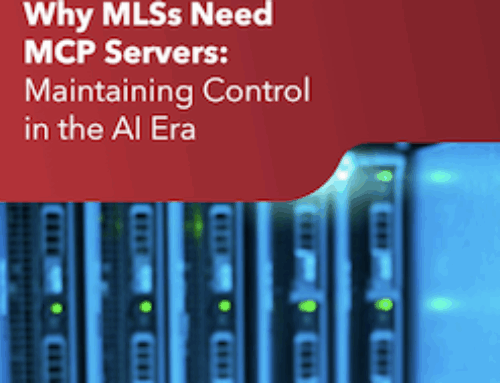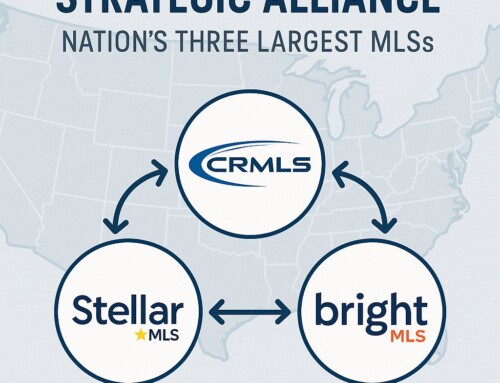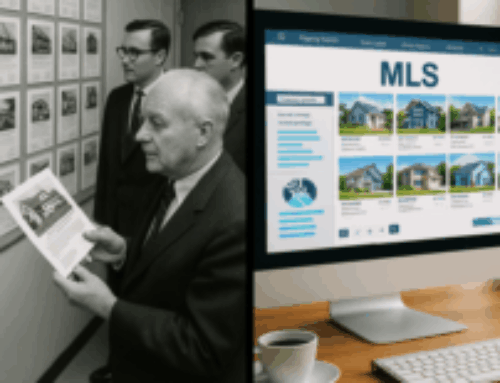 WAV Group is among the ranks of consulting and research firms dedicated to the success of the Nation’s MLSs. Given the company’s involvement at the strategic planning level, there are several developing themes being nurtured.
WAV Group is among the ranks of consulting and research firms dedicated to the success of the Nation’s MLSs. Given the company’s involvement at the strategic planning level, there are several developing themes being nurtured.
The top six trends are:
- Listing Syndication
- Premium Service Offerings
- MLS Consumer Websites
- Online Signatures
- Data Licensing
- Data Sharing
Not all of these are new; like many MLS trends, they are just slow movers.
Listing Syndication
Listing Syndication has been an MLS service trend since Listhub jumped onto the scene, offering a free listing syndication service for MLSs to share with brokers. They have gained widespread adoption and do a great job. But brokers are beginning to have concerns about listing syndication. The broker concerns do not emanate from the service provider, but rather the publishers.
Brokers are seeing fewer returns on listing syndication. The number of leads per listing is less than 1 per month across many publishers. Moreover, the traffic from syndication sites to broker sites is also diminishing. Some brokers like Shorewest in Wisconsin and Edina Realty in Minnesota have dropped out of listing syndication altogether. Others, like Howard Hanna, and many of the franchises, are only syndicating to the top handful of websites.
The heart of the issue with listing syndication is data quality and FSBO listings. Bad data tarnishes the broker and generates bad leads. Moreover, co-mingling brokers’ listings alongside FSBO listings creates consumer confusion. The Council of MLSs is working nationally with MLS members to chart a course for success.
Listhub, Point2 and reDataVault stand to see significant impact from this trend.
Premium Service Offerings
Real estate agents and brokers would love to have an App Store for real estate technology products. The natural location of that store is the MLS. It is the online place that they visit every day, offering convenience and a trusted source. Many MLSs have been resellers of technology services for years. It simply does not make sense to purchase all products for all members as a core service offering.
Premium Service offerings leverage the MLS as a collective bargaining unit for subscribers. This affords the MLS to pass along significant product discounts, and make a small percentage of non-dues revenue along the way. MRIS, CRMLS, Metrolist Colorado, MLSLI and MLS Listings are among the many MLS looking to expand these benefits to subscribers and participants in 2012.
Expect to see more app stores in MLSs in 2012 and beyond. RE Technology’s technology portal and Success Store™ offering that launched in July 2010. RE Technology is already used in 60+ MLSs across the country – growing at a pace of 1 MLS per week. These MLSs have the option of turning on the Success Store.
RE Technology and Zuora stand to see significant impact from this trend (disclosure: WAV Group partners are RE Technology investors).
MLS Consumer Websites
The goal of MLS consumer websites has always been strategic – to support local agents and brokers with a lead generation engine. As we have seen, big portals attract more consumers than small agent or broker websites – making it impossible to compete for online share of voice. The MLS competes very effectively against portals as a member benefit, and it works! As we have seen in many MLS areas like Houston, Long Island, and Sacramento (to name a few), these websites can quickly become the top property search website in their area.
The classic criticism has been that the MLS website competes with agents and brokers. This is true. If you are in a market where agents and brokers have significant traffic, you probably do not need an MLS consumer website. Howard Hanna’s dominance in Pittsburgh, Cleveland, and Erie are great examples. Edina’s dominance in the Twin Cities is too. If you are winning, you do not need help. But in many markets like San Diego, where no broker or agent website ranks in the top 20, they need help. San Diego launched an MLS consumer website and instantly jumped into the top 5 websites in that area – driving consumer engagement to subscribers.
CoreLogic, Real Estate Digital, iHomefinder, and Wolfnet stand to be significantly impacted by this trend.
Online Signatures
Online document management emerged between 2008 and 2010. Instanet, zipForms, DocCentral and others made great adoption strides. We also see mass adoption of document management in many of the leading broker and agent business management solutions. What the industry quickly realized is that going paperless requires the support of paperless signatures. There is little efficiency in having document management if you need to print out the document, get a wet signature, and reload the document. To truly go paperless, reduce costs, and support green business practices, agents and consumers need online signatures like DocuSign, Authesign, Digital Ink, eSignature, and others.
Online signatures have long been part of Federal Law, and one of the last states, New York, passed laws recognizing online signatures this year. Only a couple of states (like Washington) do not have specific laws. Washington does say that an online signature is not grounds for invalidating a document, but they do not have a law that specifically supports them. The best news is that banks and GSEs are recognizing online signatures in mass. Only a few holdouts remain. We look forward to watching the developments in the State of Virginia where Online Notary has a chance of becoming accepted by Law.
DocuSign, Instanet, and Real Estate Business Solutions (REBS) stand to be significantly impacted by this trend.
Data Licensing
Since the 2010 National Association of REALTORS® annual convention, data licensing had been coming before nearly every MLS board of directors. The for-profit company, REALTORS® Property Resource (RPR) and CoreLogic’s Partner InfoNet offering provide MLSs the opportunity to license their MLS compilation. With RPR, the MLS receives a handsome and feature rich software product arming agents and brokers with market reports and an automated valuation tool. In the case of CoreLogic, their offer includes data protection, data sharing, some other business tools and about $1 per listing per month.
The major benefit to brokers when data is licensed is expedited short sales and faster approval of REO sales. Both RPR and CoreLogic help banks and GSEs make better decisions more quickly to accelerate distressed property transactions by providing better analytical tools.
REALTORS Property Resource and CoreLogic stand to be significantly impacted by this trend.
Data Sharing
Many of the Nation’s MLSs have the need to provide localized services on top of a larger data set. The days of having a different MLS every 15 miles are over. The costs of operating small MLSs are too much of a financial burden to local agents and brokers. The largest and most successful regional data sharing initiative is CARETS in the Los Angles area. All of the regions’ MLSs put listings into a central data repository that is then synchronized into the various regional MLS systems of Los Angles. This allows participant (brokers) and subscribers (agents) to avoid joining multiple MLSs, and avoid duplicate listing entry, management, and reporting. It cures a problem called overlapping market disorder. This is accomplished while preserving the local MLS and local service offerings.
The argument against data sharing has always been the fear that if you share data, you are inviting new competition. This is an illogical, slippery slope argument. If that were true, there would need to be an MLS for every neighborhood, every street, etc. Since real estate law is set at the State level, and these laws govern MLS activities and real estate service activities, it only makes sense that MLS data would be statewide. This may be an unwieldy database in huge states like California, Florida, Texas, and others – however, it makes sense for smaller states with common database fields and likeminded MLSs.




